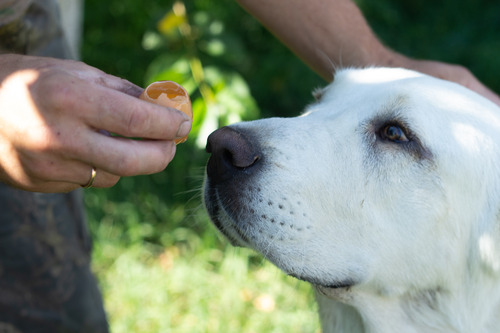When it comes to giving dogs a varied diet, many pet owners wonder about the safety of certain foods. A common question is, “Can dogs eat eggshells?” This blog explores the potential benefits and concerns of feeding eggshells to your dog, and what precautions you should take to ensure your pet’s health and safety.
Understanding the Nutritional Value of Eggshells
Eggshells are primarily made up of calcium carbonate, a compound that can provide a significant amount of calcium. This mineral is essential for maintaining strong bones and teeth in dogs. However, the nutritional benefit of eggshells extends beyond just calcium. They also contain small amounts of other minerals such as phosphorus and magnesium, which are vital for canine health.
Why Calcium Matters for Dogs
Calcium plays a critical role in your dog’s body. It helps in the development and maintenance of strong bones, which is particularly crucial for growing puppies and older dogs who may be more prone to bone health issues. Calcium also contributes to other bodily functions, including heart rhythm, muscle growth, and nerve transmission.
Safety Concerns and Proper Preparation
While eggshells can be beneficial, it’s essential to prepare them properly to avoid health risks. Raw eggshells may carry bacteria like Salmonella, which could be harmful to both your pet and your family.
How to Safely Prepare Eggshells
To safely include eggshells in your dog’s diet, follow these steps:
- Thorough Cleaning: Wash the shells thoroughly to remove any residual egg white or yolk.
- Baking for Safety: Bake the shells at 300°F for about 10 minutes. This process eliminates harmful bacteria.
- Grinding: Crush the baked shells into a fine powder. This makes them easier to digest and prevents any choking hazard.
Incorporating Eggshells into Your Dog’s Diet
Once you have prepared the eggshells properly, you can add them to your dog’s meals. However, moderation is key. Too much calcium can lead to health problems, such as kidney stones or hypercalcemia.
Suggested Serving Sizes
The amount of eggshell powder you can safely give to your dog depends on their size and dietary needs. Generally, a pinch of eggshell powder sprinkled over one of your dog’s daily meals is enough to boost their calcium intake without overdoing it.
Consultation with Veterinary Professionals
Before making any changes to your dog’s diet, it’s crucial to consult with a veterinarian. If you’re considering adding eggshells to your pet’s meals, discuss it with your vet to ensure it’s a suitable choice for your dog’s specific health requirements.
Why Professional Guidance is Essential
Veterinarians can provide personalized advice based on your dog’s health, weight, age, and nutritional needs. This is vital to prevent any dietary imbalances or health issues that could arise from a well-intentioned addition of eggshells to their diet.
Safely Providing Eggshells for Your Dog
Eggshells can be a safe and beneficial addition to your dog’s diet if prepared and administered correctly. They offer a natural source of calcium and other minerals that are vital for your dog’s health. However, it’s essential to handle them with care to avoid any health risks and to consult with a veterinarian to tailor dietary additions to your dog’s specific needs. If you have any questions about your dog’s diet or health, please call Loveland Regional Animal Hospital at (513) 697-9796. Our team is here to ensure that your dog receives the best possible care tailored to their individual needs.





